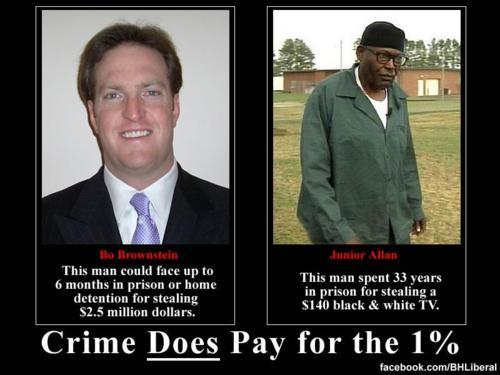.jpg?1459884375)
"America's Passion For Punishment and Torture"
http://paxonbothhouses.blogspot.com/2016/04/americas-passion-for-punishment-torture.html
Josie Duffy
Louisiana has the dubious honor of being the most incarceratory state in the world's most incarceratory country. In New Orleans, Orleans Parish District Attorney Leon Cannizaro has been hailed as a reformer—organizations like Court Watch NOLA and others have publicly touted him as such, and he claims he has "worked aggressively to reform New Orleans criminal justice system." But time and time again, he's demonstrated a disturbing tendency to adhere to his state's tradition of cruelty.“Cannizzaro is a win-at-all-costs prosecutor,” said appellate lawyer Ben Cohen to Slate.
Now, Cannizzaro is trying to put a man in prison for 20 years to life for stealing $31 of candy bars.


Jacobia Grimes was arrested in December after being caught stealing candy from a Dollar General store. In February, Cannizzaro's office decided to charge Grimes with a felony, despite the fact that the small amount could have qualified as a misdemeanor. The felony charge allowed Cannizzaro's office to charge him under a statute applicable to those with two or more theft convictions. Grimes has been convicted of theft five times before. From The Advocate:
Grimes’ attorneys, Miles Swanson and Michael Kennedy, said his prior guilty pleas — from 2001 to 2010 — were for similar shoplifting attempts.Details of Grimes’ prior heists were not immediately available from court records, but Swanson said the victims in those cases were Rite-Aid, Sav-A-Center, Blockbuster Video and Rouses stores.All involved thefts of less than $500 worth of items. In the last one for which Grimes pleaded guilty — accepting a four-year sentence in 2010 as a double offender — he relieved a Dollar General of some socks and trousers, Swanson said.
According to his attorneys, Grimes has a ninth-grade education and a heroin problem. He also seems to have other medical and/or mental health issues. From The Advocate:
A month before the candy theft, the NOPD had put out a missing-person bulletin for Grimes. It said he’d last been seen three days earlier leaving his girlfriend’s house on a bicycle and “possibly heading to a store located at Gen. Taylor and South Claiborne Avenue,” three blocks from the Dollar General where he is accused of taking the candy. The bulletin said Grimes “suffers from a medical condition and is in need of his medication.”
Clearly there are deeper issues at play here, and even the judge seems to think the sentence is absurd. But unfortunately for Grimes, Cannizzaro has almost all the power.
Grimes appeared Thursday for arraignment before Criminal District Court Judge Franz Zibilich, pleading not guilty.“Isn’t this a little over the top?” Zibilich wondered aloud over the threat of a “multiple bill,” an approach that leaves little discretion to a judge.“It’s not even funny,” the judge said. “Twenty years to life for a Snickers bar, or two or three or four.”
That's right. Grimes has requested a judge trial, but even the judge has less discretion than the prosecutor.
Grimes’ case highlights a number of critical issues, including the destructive cycle of addiction, poverty, and criminal justice involvement. Especially in the harsher states like Louisiana, poor people of color have a hard time accessing treatment and often end up incarcerated instead. Even once they are released they're left out of the economic system, and finding a job is often virtually impossible. Repeat, repeat, repeat.
There are other forces at play, too. In Louisiana, indigent defense is also in dire straits, suffering from extreme underfunding. Habitual offender laws can also be inherently problematic, putting all the discretion in the hands of the prosecutor which often results in outrageous charges such as this one. Louisiana’s habitual offender laws are notoriously harsh, and Cannizzaro takes advantage of their severity disturbingly often. The Advocate reports that he “takes advantage of such charging decisions to ratchet up the possible consequences for criminal defendants, sometimes as leverage to elicit guilty pleas." Grimes, however, decided to plea not guilty.
Grimes is expected to appear in court tomorrow.
No comments:
Post a Comment